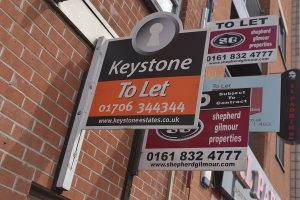Discover expert insights from Matt Johnson, the Area Director at JOHNS&CO, as he sheds light on the crucial importance of fire safety for landlords. For the majority of landlords, the primary concern revolves around receiving timely rental income. However, ensuring the safety of tenants in the property is also a crucial priority.
Neglecting to address safety measures during emergencies, such as a fire, could lead to potential prosecution for landlords, as they would be putting their tenants in harm’s way. JOHNS&CO, a leading expert in the lettings and estate agency field, is highlighting a number of fire regulations that landlords should incorporate into their checklist when renting out a property.
To begin with, it is imperative for landlords to install at least one fire alarm on every floor of the property as a bare minimum requirement. According to statistics from Gov UK, the chances of perishing in a fire at home are eight times higher if functioning smoke alarms are absent. Consider a scenario where a fire breaks out upstairs due to faulty electrical wiring or an unattended candle. In such cases, having only one fire alarm on the ground floor would be inadequate for promptly detecting the smoke, thereby hindering tenants from responding swiftly.
According to Matt Johnson, the Area Director at JOHNS&CO, “By installing an adequate number of smoke alarms in your property, you not only comply with regulations as a landlord but also prioritize the safety of your tenants. Above all, smoke alarms play a crucial role in saving lives by promptly detecting fires.”

In addition, landlords must ensure that all furniture provided in a fully or partially furnished property is fire-resistant. Confirmation of fire safety can be identified through the presence of a fire-safety symbol on the furniture label. However, it is important to note that certain items such as mattresses, bed-bases, pillows, cushions, and bed covers are exempt from these requirements, although it is advisable to go beyond the minimum standards. Any furniture brought in by tenants themselves falls under their responsibility, and they should ensure it meets fire-resistant standards.
According to Matt, it is essential for landlords to prioritize the safe installation and maintenance of any gas equipment they provide in their properties. This should be carried out by a Gas Safe registered engineer who conducts an annual gas safety check on each appliance and flue. It is not only a legal obligation but also crucial to provide tenants with a copy of the gas safety check record before they move in or within 28 days of the check. Gas, being highly flammable and volatile, poses the risk of fire or explosion if there is a leak. Therefore, compliance with the law is not the only concern; ensuring tenants reside in a fundamentally safe property is of utmost importance.
 Furthermore, landlords bear the responsibility of ensuring the safety of electrical wiring, sockets, and fuse boxes throughout the tenancy period. These aspects must be checked at least once every five years. The regulations pertaining to electrical safety came into effect for new tenancies on 1 June 2020 and have been applicable to existing tenancies since 1 April 2021. Although these measures primarily aim to safeguard tenants, they also contribute to a decrease in the risk of electrical fires for landlords.
Furthermore, landlords bear the responsibility of ensuring the safety of electrical wiring, sockets, and fuse boxes throughout the tenancy period. These aspects must be checked at least once every five years. The regulations pertaining to electrical safety came into effect for new tenancies on 1 June 2020 and have been applicable to existing tenancies since 1 April 2021. Although these measures primarily aim to safeguard tenants, they also contribute to a decrease in the risk of electrical fires for landlords.
Despite implementing all the necessary fire safety measures, there is always a potential risk of a fire incident. Hence, it is crucial for landlords to have appropriate landlord insurance in order to mitigate such risks. While insurance cannot prevent the occurrence of damage, it ensures that landlords are not burdened with the financial responsibility of repairs or reconstruction. Landlord insurance policies typically encompass coverage for fire-related hazards, including loss of rental income and liability protection, which safeguards landlords from potential legal liabilities in case the fire causes harm to tenants, their guests, or adjacent properties.
Matt emphasizes the importance of engaging a reputable and experienced letting agency to effectively manage rental investments and navigate the associated risks while ensuring full compliance with fire safety regulations. High-standard letting agencies ensure the implementation of all mandatory requirements, such as Electrical Installation Condition Reports (EICRs) and gas safety measures. They also conduct regular inspections and comprehensive inventories to ensure that your valuable asset remains secure and free from risks.
Letting agencies can provide valuable guidance on various aspects of rental investments, ranging from contracts, tenant referencing, tax obligations, market prices, safety measures, and local authority licensing to efficient property management.
